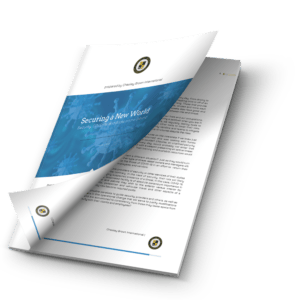Written By: James Hart
Linda Daly didn’t know exactly what was wrong, but something was off about her latest business deal.
A month earlier, Daly – the owner of a midsize retail chain in the upper Midwest — had been excited about investing in an up-and-coming manufacturer that lined up perfectly with her own mission.
Her team had done its due diligence, and the smaller company’s books looked spotless. Its owner had even won a string of business awards and been the subject of glowing national media coverage.
But Linda couldn’t shake the feeling that she was missing a critical piece of information. So she called an old friend in the corporate investigations business.
“You’ve been in business long enough to know that people can and do lie,” the Investigator told her. “That’s why you should also do an asset search on this other company.”
Hiring an investigator to conduct a professional asset search can help protect businesses from unacceptable risks by giving them clear, accurate information about potential hires and business partners — before it’s too late.
What is an asset search?
An asset search is essentially an inventory of a person or company’s publicly known assets and, in some cases, liabilities. Investigators primarily use public records and databases to build that picture.
That can include ownership of physical property (such as real estate) and even intellectual property (such as patents and trademarks). But the search can also determine if a person or company has bankruptcies, civil judgments, liens and other red flags in its history.
The search can help you determine who exactly owns a particular asset, how much it might be worth and where it’s located. (You’ll need to know which jurisdiction it’s in if you intend to take legal action against someone.)
When do businesses need asset searches?
Maybe the up-and-coming entrepreneur asking for your investment is actually living in his parents’ basement while he tries to settle a list of lawsuits longer than his arm. Or the customer who owes you six figures actually has not one, but three investment properties hidden away in another state.
You might call for an asset search …
- Before buying, entering a partnership with or investing in another entity. A search can give you a better idea of the other entity’s financial stability. The search can reveal if that potential partner has a list of bankruptcies, liens and other issues haunting their past. In a merger or acquisition, an asset search can also give you a better sense of the other company’s real value.
- Before deciding to sue someone, especially if they owe you money. If that someone is “judgment proof” — they don’t have many or any assets — it doesn’t make sense to waste the time and money on a court case. An asset search can also help you uncover when a debtor or potential defendant is hiding assets in order to appear poor.
- Before hiring an employee for a sensitive role. As part of their risk management, some companies, especially in the finance industries, may conduct an asset search to ensure their potential hires are trustworthy.
- When determining if an employee may have acquired assets beyond their salary, a potential indicator of embezzlement or similar actions.
What does an asset search cover?
An asset search can encompass many different types of assets and information, but the most common items are:
- Real estate — Real estate is one of the most valuable types of assets, and it can usually be found and tracked via public records, though some people will try to hide ownership. Which is why a good asset search looks at a subject’s …
- Interests in LLCs and other business entities — An individual will often try to disguise the extent of their holdings by transferring ownership of an asset to a seemingly unrelated legal entity, such as an LLC. An asset search can help you understand if properties are being hidden from you. The search may also reveal if other persons or entities share an ownership interest in an asset.
- Patents, trademarks and other intellectual properties — Intangible assets are still assets!
- Automobiles, watercraft and aircraft
- Judgments, liens and bankruptcies — Not an “asset” per se, but this publicly available information can be just as useful because it reveals if your subject has outstanding debts (to others who may have a claim on the subject’s assets) or if the subject has a history of being less than reliable.
What an asset search can’t always find
It can be difficult to impossible for investigators to find bank and investment accounts. The Financial Services Modernization Act of 1999 (aka the Gramm-Leach-Bliley Act) prevents investigators from using false pretenses, such as pretexting, to obtain bank account information from institutions or their customers.
Why should you hire a private investigator for an asset search?
Several web-based services allow businesses to pay for a basic asset search across multiple regions, but those types of reports often lack the context that a human investigator can provide as far as what different documents mean.
When you hire an investigator, you’re also getting someone who can go beyond the basic documents and pursue lines of inquiry suggested by the public record — such as, for example, making a phone call to someone who previously sued the subject of your asset search. That person might be able to give additional information about what the subject owns.
Find the truth about your business partners
A few days later, the Investigator called Linda back about her potential business partner. The new asset search found he had not one, but two previous bankruptcies. Even more worrisome? Someone else owned the patent that made up a critical part of the manufacturers’ product.
It was enough that Linda decided to pull the plug on the deal. She felt shocked -– and even a little embarrassed — that she came so close to going into business with such a risky partner.
“Don’t beat yourself up,” the Investigator said. “People are used to using asset searches for situations like divorces. Not everyone thinks about requesting one for risk management, but it’s one of the smartest steps you can take to protect yourself and your organization.”
The takeaways
- An asset search can help businesses build a clearer picture of the assets and liabilities of potential business partners, employees and litigants.
- A search can reveal both physical and intangible assets, such as real estate or patents, as well as bankruptcies, liens, judgments and other red flags.
- A professional investigator can provide depth and context that web-only asset searches don’t include.
Posted by:
Sign up!
For industry-leading guides and analysis sign up for our blog below.
Latest News
6 New Risks for Businesses post COVID-19
Coronavirus: 6 New Business Risks Your risk management strategy can and should play an important role in managing your business’s response to the coronavirus outbreak. By implementing the right risk management strategies for coronavirus, your…
Read More5 Tips for Creating Better Crisis Management Plans
Like a lot of people, you may be wondering what comes next for your business or organization following the Coronavirus outbreak (or any other crisis for that matter). Well, you’ve come to the right place.…
Read MoreFREE DOWNLOAD Securing a New World: Security, COVID-19, and Boots on the Ground
There can be no argument that technology has infiltrated virtually every aspect of daily life for the vast majority of people and businesses across the world. Technology is woven into the social fabric of everyday life. It monitors our movements, our interests, our purchasing power, our locations, habits, our risk to insurers, our body chemistry, and health. Our images are captured overtly and unknowingly 1000’s of times daily. It captures the best of us in amazing acts of heroism and human interaction, and it captures the worst of us; for accountability and delivery of justice.
Read MoreWhen it Comes to Corporate Espionage, Harvard’s Dr. Lieber is Just the Tip of the Iceberg
When it Comes to Espionage Harvard’s Dr. Lieber is Just the Tip of the Iceberg From Chesley Brown International By Dell Spry Renowned Harvard Professor Arrested for Lying About Connection to China. Feb 5th, 2020…
Read MoreChesley Brown Launches Initiative to Fight Human Trafficking
Chesley Brown Launches New Initiative to Fight Human Trafficking From The Chesley Brown Group Risk Management Chesley Brown, the security management experts, announced today a new training initiative to provide support to victims, families, and…
Read More







